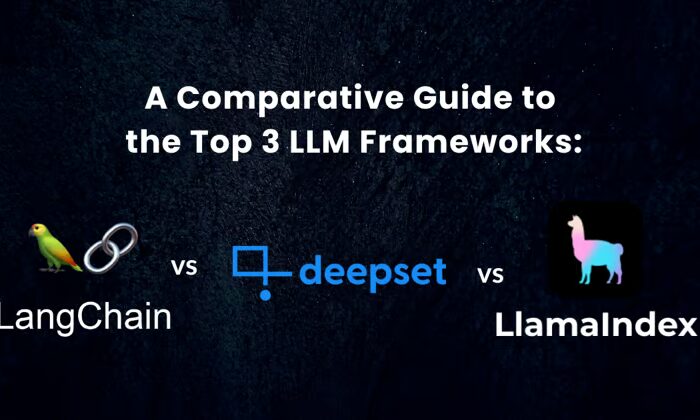
We all love a good secret, don’t we?
Well, stealth AI startups are the tech world’s version of hush-hush projects quietly building the future.
These companies are working behind the scenes, away from the spotlight — yet they’re creating powerful tools that could reshape how businesses operate.
In 2025, China is emerging as a major force in AI, especially when it comes to AI agent startups and generative AI startups.
From smart automation tools to advanced language models, these AI startup companies are solving real problems, without making too much noise.
These companies are shaping the future of AI, without the spotlight.
Let’s dive into the 5 Chinese AI startups that are big, bold, and stealth — and that you need to keep an eye on in 2025
What Are Stealth AI Startups?
Ever heard the phrase “Work in silence, let your success make the noise”?
That’s exactly what stealth AI startups do.
A stealth AI startup is a company that quietly builds its products or services without making a lot of public announcements.
They don’t shout about what they’re doing on social media or in the news. Instead, they stay low-key and focus on developing powerful AI tools behind the scenes.
Why do they do this?
Because the AI industry is super competitive and fast.
If you share too much, someone might copy your idea or even steal your model.
So, many AI startup companies choose to stay in “stealth mode” to protect their work and get ahead of the competition.
Let’s understand this with an example:
Imagine you’re working on the next big thing — like a better version of ChatGPT.
If you tell the world about it too soon, bigger companies might:
- Steal your idea
- Improve it
- Launch it before you.
But if you quietly build it, test it, and then launch it when it’s ready, boom, you catch everyone by surprise.
That’s the stealth strategy.
2025 is supposed to be the year when many AI agent startups and generative AI startups will come out of their stealth mode and reign.
They’re building tools that can think, write, plan, and even solve business problems, all while staying under the radar.
These startups are working on everything from AI for startups to next-gen thinking models that help people like you and me get more done, without overthinking.
So while the world keeps talking about the same few AI tools, these stealth companies are secretly shaping what’s coming next.
And hey, if you want to stay ahead of the curve, subscribe to our newsletter for FREE.
We share bomb AI updates and insider news, minus the fluff.
5 Big, Bold and Stealth AI Startups in China to Watch in 2025
Several Chinese AI startups are quietly working behind the scenes, building powerful tech that could shape the future.
These startups are either flying under the radar or only recently stepping into the spotlight and they’re doing so with some serious innovation.
Let’s look at 5 stealth (or previously stealth) AI companies in China that are worth keeping an eye on in 2025.
- Manus (by Monica / Butterfly Effect AI):
Manus is a general-purpose AI agent startup that aims to take everyday tasks off your plate — so you can focus on what matters (or just relax).
When we first saw Manus, the first word that came to mind was simple.
That’s the beauty of it — it’s designed with clean functionality and everyday usability in mind.
- It’s fast
- Easy to use
- Surprisingly affordable, with pricing starting around $20/month.
It’s especially great for solo founders or small businesses looking to offload routine work.
Why it’s (been) stealth: Launched in March 2025, Manus has been quietly building its product without much buzz or media coverage.
However, before it was even launched, early testers already compared it to tools like DeepSeek for its autonomy — it can even write and deploy code on its own.
- Deep Cogito:
Deep Cogito is a generative AI startup.
It stayed quiet for a while — until it finally came out of stealth mode in late 2024.
Founded by former researchers from DeepMind and Google, the startup is all about building AI that can not just respond fast but also think deeply.
Their model, Cogito 1, is designed to handle simple queries quickly and go deep on more complex reasoning, like having a fast-thinking assistant that also knows when to pause and think critically.
Why was it stealth?
The company operated in silence for months to focus on research and development without external pressure.
Now that it’s launched, it’s aiming to rethink how we scale artificial intelligence — and it’s one of the few truly research-first AI startups in China.
- Stepfun:
Generative AI startup Stepfyn was founded by Jiang Daxin, a former chief scientist at Microsoft’s Asia Research Institute.
It focuses on building powerful foundational models, kind of like the brain behind AI tools.
Their “Step-2” model reportedly has over 1 trillion parameters.
Yes, trillion, and it’s performing impressively in global benchmarks.
Why it’s (been) stealth: While their technology is top-tier, Stepfun has kept a very low profile publicly.
Most of their milestones haven’t been heavily promoted — they seem more focused on perfecting their tech quietly, rather than making noise.
- ModelBest:
An AI agent startup, ModelBest, is doing something very smart.
It’s building AI that can run directly on devices, without needing to stay connected to the internet all the time.
That’s a big deal in areas where connectivity is limited or spotty.
What makes this interesting is the blend of privacy, speed, and independence it brings.
It’s already being tested in smart devices by companies like Huawei and Xiaomi.
Why it’s stealthy: Despite working with big brands, ModelBest keeps a low public profile.
There’s not a ton of flashy marketing or hype.
Instead, they let the technology speak, quietly becoming one of the go-to startups for AI-on-device innovation.
- Infinigence AI:
Unlike other AI companies that build flashy apps, Infinigence AI– a generative AI startup company, is working in the background, building the actual infrastructure to run AI.
In short, they’re the people making AI more efficient, cheaper, and accessible.
They’re creating systems that combine different types of computer chips to make training and using AI models much more affordable.
The company raised over $140 million and says their goal is to make running AI as easy as turning on the lights, crazy right?
Why it’s stealthy: Infinigence isn’t trying to be consumer-facing.
Their work is behind the scenes, enabling others to build better AI.
That’s why you don’t hear their name much, but they’re quietly building a backbone for the future of AI.
While some of these AI startup companies are just emerging from stealth, others are still quietly working on breakthroughs.
What they all have in common is a deep focus on innovation over publicity.
They’re not chasing headlines — they’re building the next wave of AI tools that could reshape everything from startups to everyday life.
So if you’re curious about where AI in China is really headed, keep an eye on these five. The quiet ones often make the loudest impact later.
Why China Is Leading the AI Startup Movement
China is quietly, yet powerfully, building a stronghold in the global AI race.
From apps like TikTok, CapCut, Shein, and Temu to platforms like DeepSeek, Chinese tech companies are not just going viral — they’re going global.
What’s more interesting?
Many of these innovations are backed by stealth AI startup companies that prefer to build behind closed doors before making a big splash.
In fact, China now files more AI patents than any other country — a clear sign that innovation is not just happening, but happening fast.
So what’s helping China lead this AI wave?
- Long-Term Vision Across Industries:
Whether it’s electric vehicles, solar panels, batteries, or now generative AI startups and AI agent startups, China works with long-term planning.
Instead of focusing only on short-term wins, the country is playing the long game — investing early, iterating fast, and scaling big.
- State-Backed Capitalism:
Unlike most Western countries, China runs on a unique model: the government actively sets research goals, provides funding, and even outlines tech roadmaps.
This allows companies, especially startups, to focus less on raising funds and more on building impactful AI models.
- Global Talent Strategy:
China has strategies in place to attract foreign researchers or encourage partnerships with global firms.
Often, international companies must form joint ventures with Chinese entities if they want to operate there.
This helps China absorb global expertise while growing local capabilities.
- Push for Self-Reliance:
With increasing restrictions and sanctions from Western countries on sensitive tech exports, China has doubled down on becoming self-sufficient.
This external pressure has actually fueled the rise of stealth AI startups — companies that are building breakthrough AI in secret, ready to emerge stronger and more resilient.
China’s Role in the Global AI Scene
Today, AI for startups is more accessible than ever in China, thanks to a mix of public funding, private innovation, and rising developer communities.
From AI agent startups that can automate entire business workflows to generative AI tools that write, design, and build on their own, Chinese AI startups are covering it all.
And while many of them operate in stealth mode for now, they’re setting the stage to challenge — and possibly outpace some of the biggest names in the West.
So, the next time you hear about an exciting new AI tool, don’t be surprised if it has roots in a Chinese stealth startup.
Conclusion: The Quiet Storm Is Coming
For the world, this might feel like the beginning of the AI race — but for China, it’s all part of a well-planned strategy.
From stealth AI startups working behind closed doors to AI agent startups and generative AI startups pushing new boundaries, China is building a powerful future — quietly, smartly, and at speed.
These AI startup companies are preparing to lead.
And while many of these AI startups are focused on local growth now, global disruption is only a matter of time.
Just like TikTok changed how we use social media, the next wave of AI tools, built with AI for startups and beyond, could shift the global tech landscape.
In today’s world, the best defense isn’t just secrecy.
It’s building something so strong, so innovative, and so useful that it’s nearly impossible to copy.
That’s the unfair advantage these bold and stealth startups are creating.
The next global AI leader might not make noise now, but it could very well be a name you’ll hear everywhere tomorrow.
And chances are, it’ll be coming out of China.
Want to stay ahead of the curve?
Subscribe to our newsletter for FREE and get hot AI updates, inside scoops on stealth startups, and early signals on the next big moves in the world of artificial intelligence.
Subscribe To Get Update Latest Blog Post









Leave Your Comment: